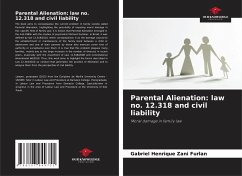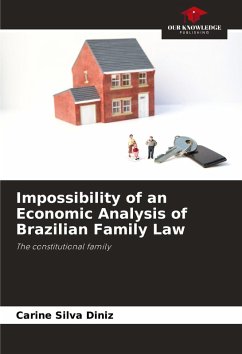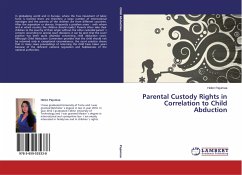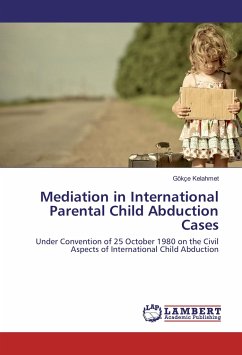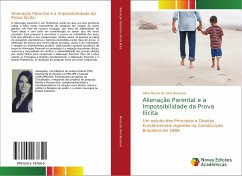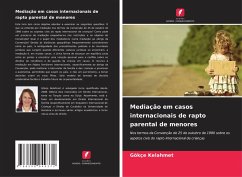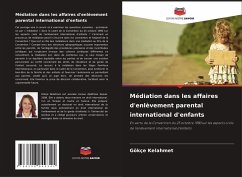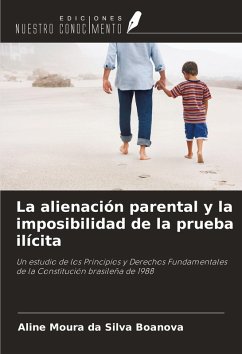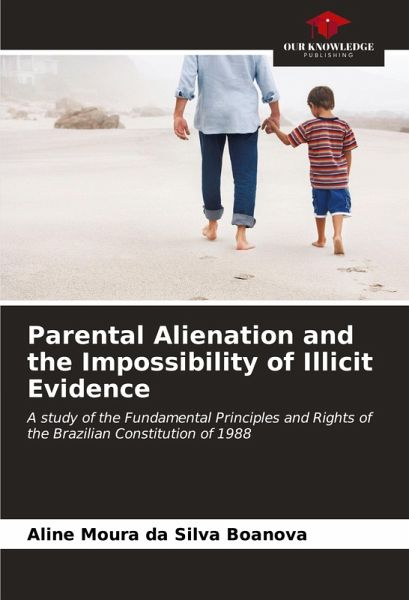
Parental Alienation and the Impossibility of Illicit Evidence
A study of the Fundamental Principles and Rights of the Brazilian Constitution of 1988
Versandkostenfrei!
Versandfertig in 6-10 Tagen
33,99 €
inkl. MwSt.

PAYBACK Punkte
17 °P sammeln!
Parental Alienation is a social phenomenon in which one of the parents uses the child as an instrument of revenge against the other parent, in the face of marital breakdown, by implanting false ideas and without taking into account the damage that will be caused. This process is sneaky and takes place in the privacy of homes, which makes it difficult to prove. People often use clandestine recordings and hidden cameras as a means of proof. Obtaining evidence that violates any principle, such as privacy, is forbidden in the legal system. Observing the high incidence of cases of Parental Alienati...
Parental Alienation is a social phenomenon in which one of the parents uses the child as an instrument of revenge against the other parent, in the face of marital breakdown, by implanting false ideas and without taking into account the damage that will be caused. This process is sneaky and takes place in the privacy of homes, which makes it difficult to prove. People often use clandestine recordings and hidden cameras as a means of proof. Obtaining evidence that violates any principle, such as privacy, is forbidden in the legal system. Observing the high incidence of cases of Parental Alienation in society and the prohibition of illicit evidence, the need was felt to verify the admissibility of evidence obtained by illicit means to prove Parental Alienation. To this end, the work studies Fundamental Principles and Rights, Parental Alienation and Evidence Law. The result of the research takes an unexpected turn.





